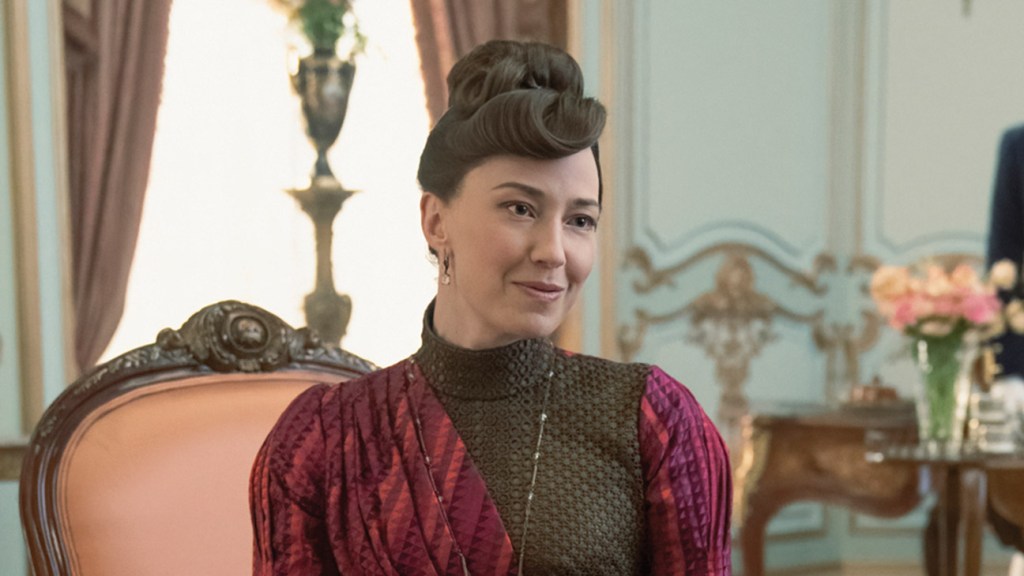Carrie Coon Talks About Portraying the Antiheroine in the Show
On HBO’s The Gilded Age, Carrie Coon is a standout among the ensemble cast, with her role as Bertha Reynolds allowing her to portray a rare female antihero. As a member of the new-moneyed elite, thanks to her husband George (Morgan Spector), Bertha disrupts Manhattan’s social hierarchies, particularly in season two when a public war breaks out between her and Lady Astor (Donna Murphy) over dueling opera houses. Coon recently discussed the joys of playing a character like Bertha that viewers can’t help but root for.
What do you enjoy most about portraying Bertha Reynolds?
I love her willingness to call out people on their nonsense. It’s fun when she breaks through social expectations and speaks her mind. I also appreciate the vulnerability she shows with George. Season two allowed us to explore this dynamic further, revealing a different side of her when she lets her guard down. She’s uncompromising, myopic, and polarizing, and that’s what makes her character so intriguing.
She truly embodies the show’s antiheroine.
Despite their ruthless behavior, viewers find themselves rooting for characters like Bertha and George because they drive the narrative forward. People are drawn to individuals who take action, and the respect and ambition in their marriage make them even more appealing. In a time where respect is lacking, their relationship stands out.
Does getting into the period-specific costumes and makeup help you get into character?
Preparing for my role used to involve a lot of research, but with time constraints and personal responsibilities, I rely more on the costumes and makeup to transform into Bertha. These elements play a significant role in shaping the character, and our talented designers create immersive environments that aid in the character development process.
You bring a unique voice to Bertha. How did you develop her speaking style?
Early on, I discovered that giving Bertha a deep, commanding voice helped her stand out in a room. This choice felt authentic to her character and the time period she inhabits.
Especially considering the challenges women faced during Bertha’s time.
Women, particularly those of lower classes and marginalized communities, faced immense challenges and exploitation during this era. Bertha’s focus on social activities like fundraising and social climbing was limited by societal restrictions. The lack of opportunities for women like Bertha is a reflection of the times they lived in.
This interview originally appeared in a June issue of The Hollywood Reporter magazine. Click here to subscribe.

